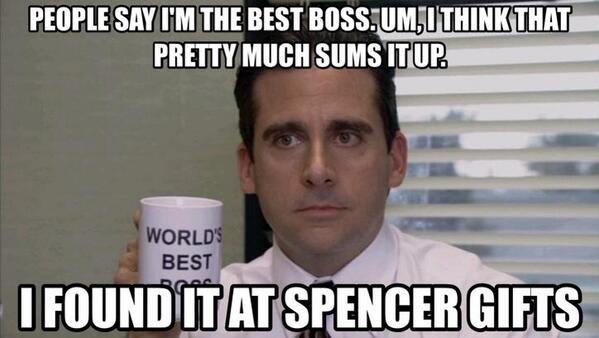
Most people wouldn’t say they are awful since they’re getting decent evaluations and raises. I didn’t think I was not a bad manager. In fact, I thought I was pretty badass.
Fortunately, my leadership skills improved. Here is my journey.
I was not self-aware.
I had a job where I negotiated contracts for a clinical research site. My bonus was based on how well the negotiations went. I would build these massive spreadsheets detailing every task and supply that we would use to ensure our costs are covered. I really liked everything to be precise. I loved being efficient and solving problems. The good news is that my strengths translated to financial success for the company, and I was recognized and promoted.
I was really surprised when I took both The Predictive Index and Hogan Assessment Test. Both reports told me that I don’t love process, details, and structure. But how? I did a really great job building those spreadsheets. What I realized through a great deal of self-discovery and working with coaches was that I loved winning. Being process-oriented allowed me to win the negotiation. I didn’t really care about things being done “the right way”, which true process-oriented people cared about. I wanted them done MY way. This is a distinction that people on the outside may not see.
If that bonus motivator wasn’t there, I wouldn’t have been very happy building spreadsheets to that level of detail. However, at that point, I didn’t know that.
I was not a good manager.
I started managing people pretty early on in my twenties. I was not well-equipped as a leader, nor was I given good direction (because, honestly, how many bosses can you say were amazing mentors to you?) Rather, I was encouraged to “keep doing what I was doing”.
Now, you should know a little more about me. In addition to efficiency and problem solving, I LOVE telling people what to do. I love directing and having things go my way. So I built a team of people who executed everything exactly as I said. While I paid them well, I didn’t invest in the GROWTH of my employees and I didn’t build trust or autonomy. Everyone had a place in the well-oiled machine, and I was proud of that. If employee engagement was as important as it is now, my score would have been very low. If I kept that same leadership style through the rest of my career, my turnover rate would’ve been sky-high.
This leads us to the next point of leading well…
It’s interesting to think that leaders of professional sports, even kids playing fantasy sports, have more data on their players and teams than we do in business. They have access to a wide range of stats that allows them to build winning teams. How do we know who’s on our team?
Who’s on my team?
As leaders, we need to understand people. Just like professional sports, we need to know who is on the field. And people, like ourselves, are complex. When we don’t understand the dynamics of our teams, it creates misunderstanding and unhealthy tension, all of which impact results. Understanding how to navigate and lead a given team is a core component of a leader’s job.
In my unaware leader example – I hired all “yes” people. I was not a true leader that prepared my team for success when I would no longer be there. My boss valued financial success, so I was promoted. No one considered how my employees felt. I was essentially rewarded for being a bad manager.
Even self-aware leaders can have missteps.
So who am I as a person now?
- I love innovation and breaking status quo, but I also love results and winning.
- I’m not too concerned for process – happy to let others deal with the details.
- I like to work at a fast pace and need the pressure of a deadline to put out great work.
These attributes have both pros and cons, and these pros and cons come to life especially when I work with others. Given my strengths and blind spots, I hired an intern who IS process-oriented to help me be more organized. Having someone who is process-oriented also means that they take the time to truly understand something before they put in a process. I gave them a task.
What I expected was that she would ask questions if she runs into a roadblock. The reality was that her work was stalled. When work wasn’t turned in on time, I got frustrated. My old self would’ve probably assumed the intern wasn’t a good employee or blamed them for not being resourceful. Since I’m in the business of human behavior, I reflected and knew 100% that I didn’t set her up for success.
You can see from this graphic that CG Intern needs to do things using the established process. I didn’t provide enough direction to begin with. The checklists that I made for her probably could’ve had 10 additional steps between each step. I didn’t explicitly give her permission to ask questions, and this is especially important since they are collaborative and in the position of an intern, there is a power distance.
Having emotional intelligence doesn’t mean you don’t mess up or get frustrated. It means you can take stock and readjust quickly and apologize, if necessary.
The formula for work is:
You + others + work = results
YOU. ASK YOURSELF, “Who am I as a leader?”
How do I lead, what’s my style, my approach – how do I think and work? Am I more people-centric, or do I lean toward the analytical – or perhaps a little of both? Do I like a collaborative team approach, or am I more autocratic? Is my communication direct and to the point, or am I more empathetic in tone? These are just a few examples, but they point to the wildly different ways in which leaders approach work.
OTHERS. ASK YOURSELF, “Am I giving employees what they need to be successful?”
In this tight labor market where employees are looking for fulfillment, it doesn’t cut it to be an unaware leader. How does the team go about its work?
How do they communicate?
How do they take action?
What are their strengths?
What are their blind spots?
How do they interact together?
WORK. “What does my team need to do?”
Is the work related to:
Teamwork – engagement, morale
Innovation – breaking new ground
Process – systems, operations
Producing – results, accountability
Or, some combination of the above
Here is a tool that Predictive Index offers, to give managers insight into what support their employees need.
Do you want to find out what your management style is? Take the PI assessment below:

